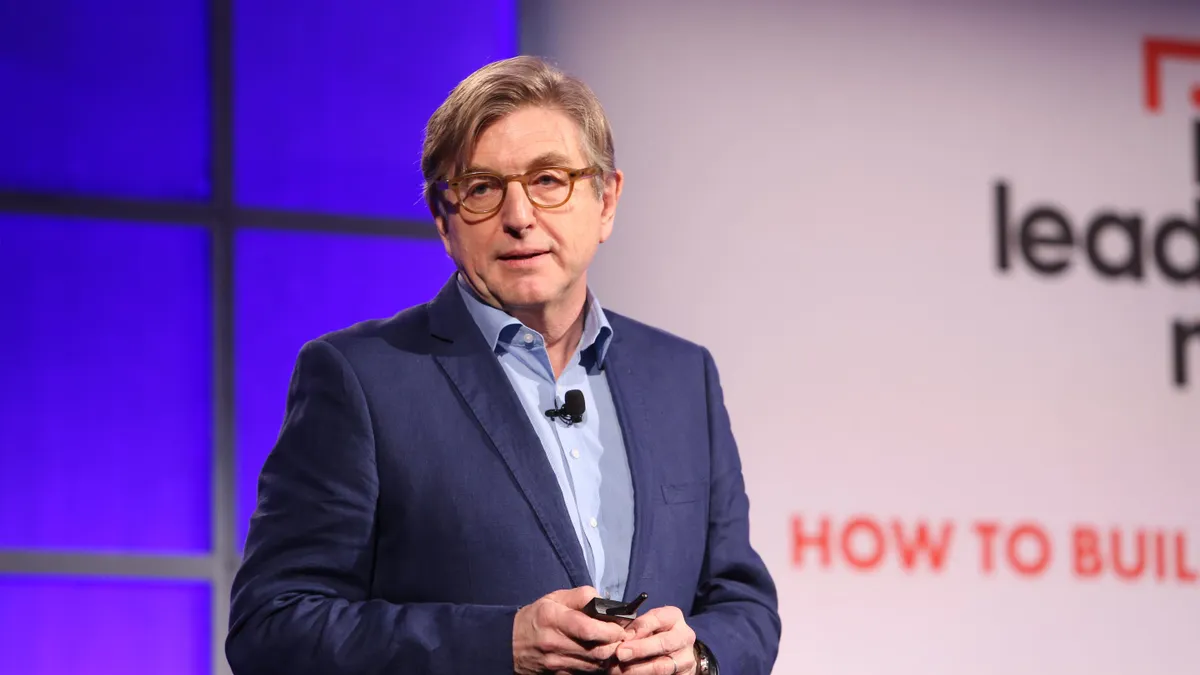Dive Brief:
- Keith Weed was named the most influential global CMO of 2019 in an annual ranking put together by Forbes, LinkedIn and the customer experience management solutions provider Sprinklr. The announcement marks Weed's third consecutive year at the top of the list analyzing global brand executives, even though the marketer retired from Unilever in May after a nine-year run as CMO and 35 years at the company.
- Rounding out the top five spots in descending order were Marc Pritchard (Procter & Gamble), Antonio Lucio (Facebook), Ann Lewnes (Adobe) and Kristin Lemkau (JPMorgan Chase). The list, which Forbes' CMO Network has compiled for seven years, including three using Sprinklr as a data partner, looks at qualifications like brand performance in relation to social media engagement, personal influence, and industry and internal influence, which is drawn from LinkedIn research.
- Of the 50 most influential CMOs, more than 60% this year were women, an uptick from 2018's list, which was split about evenly in terms of sex. In addition, tech companies led the pack by category with 17 appointments. Overall, 22 CMOs were new to the top 50, while 28 returned from last year.
Dive Insight:
Weed again topping Forbes' Most Influential CMOs list reinforces that the executive's departure from Unilever is also a loss for marketing thought leadership generally. The ranking analyzed datasets from January 2018 to the end of March this year, when Weed technically was still working (he announced plans to leave in December). But Unilever has yet to name a CMO replacement, and industry reports have indicated the organization behind brands like Dove and Axe might eliminate the position entirely amid overhauls to other areas of marketing operations like procurement.
A theme running through the list this year, and an approach Weed frequently adopted, was leveraging the CMO platform to amplify brand values and purpose. P&G's Pritchard was credited by Forbes for backing campaigns like Gillette's "The Best Men Can Be," a controversial piece of advertising that challenges notions of toxic masculinity, including through reference to the #MeToo movement. The positioning generated a lot of blowback when it debuted in January, but has been defended by executives and evolved this year, such as through a recent spot depicting a transgender teen's first shave with his father.
The CMO rankings are determined mostly by executives and their brands' degree of online influence — in regards to factors like shares, likes and retweets — and less on business metrics like sales and revenue. Some placements could raise eyebrows. Facebook's Lucio, who previously spearheaded marketing at HP, has a heavy burden in trying to turn around public perceptions of a company grappling with regulatory scrutiny toward its data privacy practices and continued accusations of helping to spread fake news and other malicious content. The executive recently said Facebook could more than double its advertising spending as it looks for a turnaround, along with rejiggering its roster of agency partners, The Wall Street Journal reported.
The general makeup of influential CMOs seems to improving, with more women on the list than last year. Research has previously illustrated a lack of diversity among marketing shot-callers. The ANA, a trade body representing many of the world's biggest advertisers, released a report last year that revealed the industry is "overwhelmingly" female, yet just 45% of CMOs at surveyed ANA member companies were women. Breaking things down by race revealed even greater disparities, as 87% of CMOs were white, 5% were Hispanic and Asian and just 3% were black.















